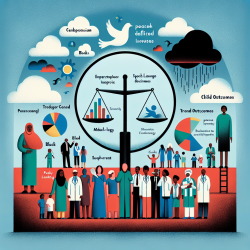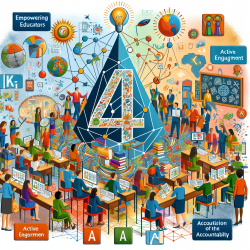Introduction
The issue of peacekeeper-perpetrated sexual exploitation and abuse (SEA) in the Democratic Republic of Congo (DRC) is a pressing concern, accounting for 36% of global reports to the UN between 2007 and 2021. This blog post examines the findings from a research study titled "Participant and narrative characteristics associated with host community members sharing experiences of peacekeeper-perpetrated sexual exploitation and abuse in the Democratic Republic of Congo" and explores how practitioners can leverage these insights to enhance their skills and improve outcomes for affected communities.
Key Findings from the Research
The study utilized a mixed-methods approach, combining qualitative and quantitative data, to explore the characteristics associated with sharing experiences of SEA. Key findings include:
- Participants in Bukavu and Kalemie were less likely to share narratives about sexual interactions, while civilian UN personnel were more likely to be implicated in such narratives.
- Narratives where outcomes were deemed fair to the woman/girl were more likely to involve sexual interactions, often due to perceived financial or material gain.
- Poverty played a significant role in SEA, influencing perceptions of fairness and informed consent.
Implications for Practitioners
Practitioners working in the field of speech language pathology, especially those focused on data-driven decisions, can draw several implications from this study:
- Understanding Local Context: Practitioners should be aware of the socio-economic factors influencing SEA and incorporate this understanding into their therapeutic approaches.
- Community Engagement: Engaging with local communities to understand their perceptions and experiences can provide valuable insights for designing effective interventions.
- Targeted Interventions: The study highlights the need for targeted SEA prevention initiatives, particularly in areas with higher community reports of SEA.
- Training and Education: Practitioners should advocate for and participate in training programs that address the nuances of SEA and its impact on local communities.
Encouraging Further Research
The study underscores the complexity of SEA and the need for further research to explore perceptions around fairness and informed consent. Practitioners are encouraged to contribute to this body of knowledge by conducting research that examines the intersection of poverty, SEA, and community perceptions.
Conclusion
By integrating the insights from this research into their practice, practitioners can enhance their skills and contribute to creating better outcomes for children and communities affected by peacekeeper-perpetrated SEA. Understanding the local context, engaging with communities, and advocating for targeted interventions are crucial steps in addressing this complex issue.
To read the original research paper, please follow this link: Participant and narrative characteristics associated with host community members sharing experiences of peacekeeper-perpetrated sexual exploitation and abuse in the Democratic Republic of Congo.










